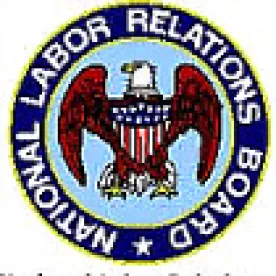-
Management-side labor and employment lawyer John Ring has been nominated by President Donald Trump to fill the vacant seat on the five-member National Labor Relations Board. If confirmed, Ring would replace former-Board Chairman Philip Miscimarra, a Republican, and restore a 3-2 Republican majority to the Board. Miscimarra’s term ended on December 16, 2017. Ring’s confirmation hearing before the U.S. Senate Health, Education, Labor and Pensions Committee, originally scheduled for February, is scheduled to take place on March 1, although some expect it may be further postponed.
-
The NLRB General Counsel’s office issued a Case Processing Memo on January 29, 2018. The Memo sets out a number of suggested changes to the NLRB’s procedures. The Memo advocates for changes to the Board’s rules that, among other things, would: (1) require parties in Board cases to respond to Board inquiries within two days; (2) direct Board officials to seek settlements in all cases; and (3) reduce the length of investigations. The Memo asks Board staff for input on the proposed changes.
-
NLRB General Counsel Peter Robb has announced his desire to centralize the agency’s decision-making process. On a January 11, 2018, Board conference call, Robb stated his plans to reorganize the Board’s 26 regional offices into fewer districts or regions, run by officials reporting directly to Robb’s office. This would place decision-making authority in the hands of officials who are not located in the local regional offices. Following the January 11 call, a committee of NLRB regional directors wrote to Robb to express “grave concerns” about the possible restructuring, arguing the changes would negatively affect the Board’s ability to enforce the National Labor Relations Act. A group of 56 former regional directors penned a separate letter to Robb, expressing similar reservations. It is likely that Robb’s changes, if formally proposed, would require public comments and approval by the NLRB.
-
The NLRB on January 26 announced that it is extending the time for filing responses to its request for information regarding its 2014 election rule. The new deadline for submissions is March 19, 2018. The NLRB asked whether the 2014 rule should be retained as-is, retained with modifications, or rescinded. The election rule changes, which took effect on April 14, 2015, allowed union organizing to move at an accelerated pace by, among other things, significantly reducing the time between the filing of a representation petition and the election from an average of approximately six weeks to an average of 23 days.
-
The U.S. Supreme Court has scheduled oral arguments for February 26 in Janus v. AFSCME Council 31, No. 16-1466, the case set to decide whether unions legally can require public sector non-members to pay union fees. This will be the second time in the past two years that the Court will consider the constitutionality of such mandatory fees. In Friedrichs v. Cal. Teachers Ass’n, No. 14-915, the Supreme Court deadlocked 4-4 on the issue after the death of Justice Antonin Scalia. This resulted in the automatic affirmance of a lower court decision upholding the legality of the fees. Many expect that the arrival of Justice Neil Gorsuch on the Court will provide opponents of the fees the win they sought in Friedrichs.
Top Five Labor Law Developments for January 2018
Thursday, February 22, 2018
Current Public Notices
Published: 28 August, 2025
Published: 25 August, 2025
Published: 25 August, 2025
Published: 25 August, 2025
Published: 25 August, 2025
Published: 22 August, 2025
Published: 20 August, 2025
Published: 20 August, 2025
Published: 18 August, 2025
Published: 18 August, 2025
Published: 15 August, 2025
Published: 14 August, 2025
Published: 12 August, 2025
Published: 11 August, 2025
Published: 8 August, 2025








 />i
/>i
